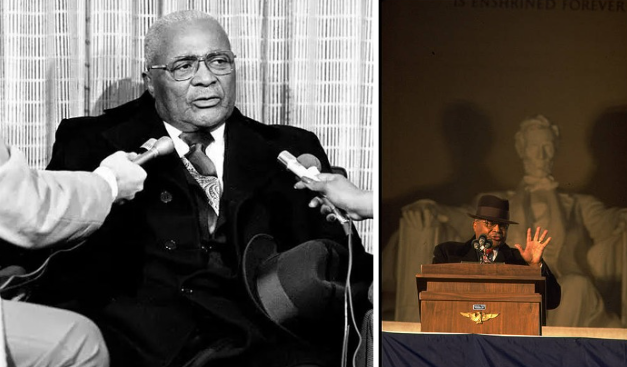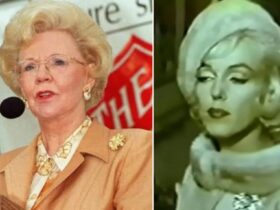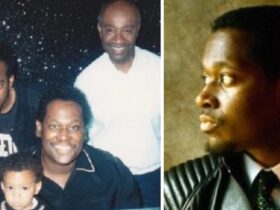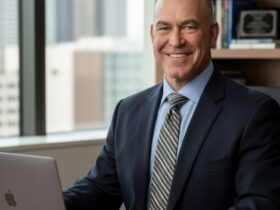Martin Luther King Sr. was a deeply respected American Baptist minister and civil rights leader, best known for being the father of Dr. Martin Luther King Jr.. Beyond this legacy, he played a pivotal role in shaping both his son’s values and the broader movement for racial justice in the United States.
Quick Bio
| Full Name | Martin Luther King Sr. |
|---|---|
| Born | December 19, 1899 |
| Birthplace | Stockbridge, Georgia, United States |
| Died | November 11, 1984 |
| Place of Death | Atlanta, Georgia, United States |
| Occupation | Baptist Minister, Civil Rights Activist |
| Spouse | [Insert] |
| Children | Martin Luther King Jr., Christine King Farris, A.D. King |
| Education | Morehouse College, Bryant Theological Seminary |
| Notable For | Father of Martin Luther King Jr., Civil Rights Leader |
| Religious Affiliation | Baptist |
Early Life and Background

Martin Luther King Sr. was born into a life of hardship on December 19, 1899, in Stockbridge, Georgia. Originally named Michael King, he changed his name later in life to honor Protestant reformer Martin Luther. Raised in a racially segregated society, his early experiences with discrimination and poverty deeply influenced his worldview and commitment to social justice. These experiences sparked a strong desire for education and spiritual growth, which would guide his life’s journey.
Education and Spiritual Formation

Despite facing economic and racial obstacles, King Sr. pursued education with determination. He first attended Dillard University and later enrolled at Morehouse College, a prestigious historically Black college in Atlanta. Furthering his religious calling, he studied at Bryant Theological Seminary, preparing for a life in ministry. His education was not just academic—it was moral and spiritual, shaping him into a preacher who believed in the power of faith to fight injustice. His belief that the church should lead social change would become a cornerstone of both his own ministry and the legacy he passed on to his children.
Ministry and Religious Influence
In 1931, Martin Luther King Sr. became the pastor of Ebenezer Baptist Church in Atlanta, a position that would define much of his life’s work. Under his leadership, the church evolved into a hub of spiritual leadership and community advocacy. King Sr. delivered powerful sermons that emphasized morality, equality, and Christian responsibility. He believed deeply in faith in action, urging his congregation to stand against injustice through love, persistence, and nonviolence. The pulpit became not just a place of worship, but a platform for justice.
Role in the Civil Rights Movement

Though often overshadowed by his son’s global legacy, Martin Luther King Sr. was a passionate and early participant in the fight for civil rights. Long before the major marches and speeches of the 1960s, he was speaking out against segregation, fighting voter suppression, and advocating for the economic upliftment of Black communities. In 1936, he led a protest that resulted in the desegregation of elevators in Atlanta’s City Hall—a quiet but powerful victory. Through church-led initiatives, community organizing, and public advocacy, King Sr. laid much of the grassroots foundation for what would become the larger civil rights movement.
Relationship with Martin Luther King Jr.
The relationship between King Sr. and his son was built on mutual respect and shared purpose. From an early age, he introduced Martin Jr. to public speaking, ministry, and civic responsibility. He taught by example, showing what it meant to stand tall in the face of racism and to lead with courage and conviction. Though they sometimes had differing views—King Sr. was more conservative in his activism—their values were deeply aligned. He supported his son through every phase of his journey, from seminary studies to leadership of the Montgomery Bus Boycott and beyond.
Influence on King Jr.’s Philosophy
The influence of Martin Luther King Sr. on his son’s moral and spiritual philosophy cannot be overstated. He was the first to teach Martin Jr. about nonviolence, faith, and service. He introduced him to thinkers, preachers, and scriptures that emphasized justice, love, and peaceful resistance. Martin Jr. once said, “My father gave me a sense of love, security, and confidence. He was my first hero.” King Sr.’s dedication to justice through Christian principles was the foundation upon which Dr. King built his vision of a beloved community and nonviolent social change.
Later Years and Legacy
After the tragic assassination of Martin Luther King Jr. in 1968, King Sr. continued to preach and advocate for peace and reconciliation. Even after enduring the loss of his son, and later, the heartbreaking murder of his wife Alberta in 1974 during a church service, he remained committed to his faith and mission. He wrote his autobiography, “Daddy King: An Autobiography,” published in 1980, sharing reflections on faith, family, and the fight for equality. Until his death in 1984, he remained a guiding light for the church, his family, and the civil rights community.
Published Works and Speeches
While not as prolific a writer as his son, Martin Luther King Sr. delivered countless sermons and speeches that left lasting impressions. His most significant work is his autobiography, “Daddy King,” which chronicles his journey from rural poverty to religious leadership. In his speeches, he spoke with a powerful voice about racial injustice, moral courage, and the role of the church. His oratory skills and deep biblical knowledge inspired not just his family but his entire congregation and beyond.
Recognition and Honors
Throughout his life, King Sr. received numerous honors for his ministry and civil rights efforts. Though he lived in the shadow of his son’s international fame, he was celebrated for his dedicated leadership and moral authority. Educational institutions, religious organizations, and civil rights groups recognized his role in shaping modern America. His legacy continues to be honored in books, films, and historical retrospectives of the civil rights era.
Tragedies and Personal Losses
The King family’s story is marked by both triumph and tragedy. The assassination of Dr. King in 1968 devastated King Sr., but he chose to respond with forgiveness and renewed commitment to peace. Despite these tragedies, he leaned on his faith, refusing to give in to hatred or despair. His resilience remains one of the most inspiring aspects of his character.
Impact on American History
The influence of Martin Luther King Sr. on American social and religious history is profound. He helped redefine the role of the Black church as an agent of social change. He mentored one of the greatest leaders in U.S. history and built a platform that merged faith with action. His work empowered countless individuals to pursue justice, and his model of strong, ethical leadership continues to serve as an example for pastors, parents, and activists today.
Why Martin Luther King Sr. Still Matters Today
In a time where injustice and division persist, the values lived and taught by Martin Luther King Sr. are more relevant than ever. His life reminds us that change begins in the home, the church, and the community. He showed that love, faith, and discipline can raise generations of leaders. His voice may not have echoed as loudly as his son’s across the world, but it was the voice that nurtured the dream.
FAQs
Who was Martin Luther King Sr.
He was an American Baptist minister and civil rights advocate, best known as the father of Martin Luther King Jr.
What role did he play in the civil rights movement
He advocated for racial justice through church leadership, desegregation efforts, and community activism in Atlanta.
How did Martin Luther King Sr. influence his son
He instilled values of faith, discipline, and social justice that deeply shaped Dr. King’s philosophy and leadership.
What book did he write
He authored Daddy King: An Autobiography, reflecting on his life and the civil rights struggle.
When did Martin Luther King Sr. die
He passed away on November 11, 1984, in Atlanta, Georgia.
What church did he serve
He served as pastor of Ebenezer Baptist Church in Atlanta, Georgia.
Why is he important today
His leadership and values laid the moral and spiritual groundwork for the civil rights movement and still inspire action today.
Did Martin Luther King Sr. change his name
Yes, he changed his name from Michael to Martin Luther to honor the Protestant reformer.
For More Updates Visit: Biomagazine












Leave a Reply